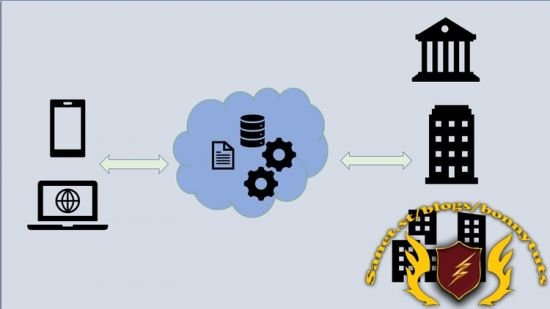
Published 9/2023
Created by Ram K
MP4 | Video: h264, 1280×720 | Audio: AAC, 44.1 KHz, 2 Ch
Genre: eLearning | Language: English | Duration: 14 Lectures ( 1h 34m ) | Size: 583 MB
Realtime API and bulk loads and event based Integration
What you’ll learn
Understanding the API
Creation, and invocation of API
Understanding the CAI Capabilities
Solving the problems with Application Integration
Integration of real-time data
Requirements
Basic API knowledge
Understanding the CAI Capabilities
Description
APIs have become commonplace, and with so many different personas throughout the API lifecycle (architects, business technologists, developers, consumers, producers, designers, citizen integrators, etc., the need for end-to-end API lifecycle management is critical. With Informatica application integration, organizations can now design, implement, deploy, monitor, deprecate, secure, discover, reuse, and retire APIs that span multiple clouds and on-premises systems within and outside their firewalls.Democratization of APIs: Informatica ensures that APIs can be developed not only by elite Java-class developers but also by members of your data and application teams. The APIs you design are implemented with a simple form-based, user-friendly, and intuitive designer. This is a game-changer for organizations that can no longer depend on the availability of consultants or overloaded IT teams. Through the power of APIs, Informatica provides customers with broad data access and manipulation. You can orchestrate, ingest, synchronize, replicate, transform, and lift and shift just about any data, residing on the cloud, on-premises, or inside or outside your firewall, at virtually any speed, with virtually any specified latency, in real-time. And it’s all done with a simple API call. Plus, access to your APIs is controlled, throttled, and monitored.Informatica API Center enables you to automatically discover and describe your data for use in various integration scenarios. Informatica API Center also empowers organizations to identify security vulnerabilities in APIs, policies and provide recommendations for how to address them. This can help ensure that your APIs are secure and protect user data. Whether processing large bulk datasets, exposing or making API calls, or initiating mass ingestion of data, you need effective tools that can help you describe the data. CLAIRE-based metadata discovery gives your teams the intelligence required to understand and capture the value of your data.With Informatica API Center, you can design an API in minutes with a graphical interface that defines API behaviors. This is accomplished by defining the endpoints, data formats, authentication, authorization, and other details of the API’s functionality. The API design feature helps ensure that APIs are easy to use and meet the required performance and security standards. This feature helps users drive the prototyping and testing of APIs, such as creating complete API specifications, modeling data structures, and generating code stubs.The API implementation feature allows you to seamlessly implement the APIs that were created in the API design stage using Informatica API Center. The implementation feature also enables testing to create a functional API that can be used in the environment.This feature helps generate code in various programming languages, based on the API design specifications, to help developers quickly and accurately implement the API and later test it for API functionality, performance, and security. The implementation feature helps the developer take the API design and bring it to life by creating APIs using various programming languages, frameworks, and tools. It also helps when creating API documentation, versioning, and testing.Once an API has been implemented and tested, the API deployment feature deploys the API to various environments, (such as the cloud, on-premises, or hybrid environments), and manages API gateways, load balancers, and other infrastructure components. This capability allows for the easy deployment of the API to various environments, including development, testing, staging, and production.Informatica API Center helps organizations manage APIs, including version control and access control. It helps ensure that APIs are secure, reliable, and performant and that they are being used appropriately. It also analyzes API usage and performance and enforces API policies, such as authentication, authorization, rate limiting, and throttling.Informatica API Center allows easy versioning of the API. This includes the ability to make updates, rollbacks, and bug fixes, as well as version control to ensure backward compatibilityInformatica API Center provides comprehensive security and exception logging. The API administrator can quickly identify and analyze unauthorized API access attempts and policy exceptions. This capability allows you to monitor API performance, usage, and errors in real time. This helps identify issues and opportunities for optimization and ensures that SLAs are being met.
Password/解压密码www.tbtos.com
https://rg.to/file/207089b90354f64ca4010bc44a960bad/IICS_Application_Integration_(CAIICRT).rar.html